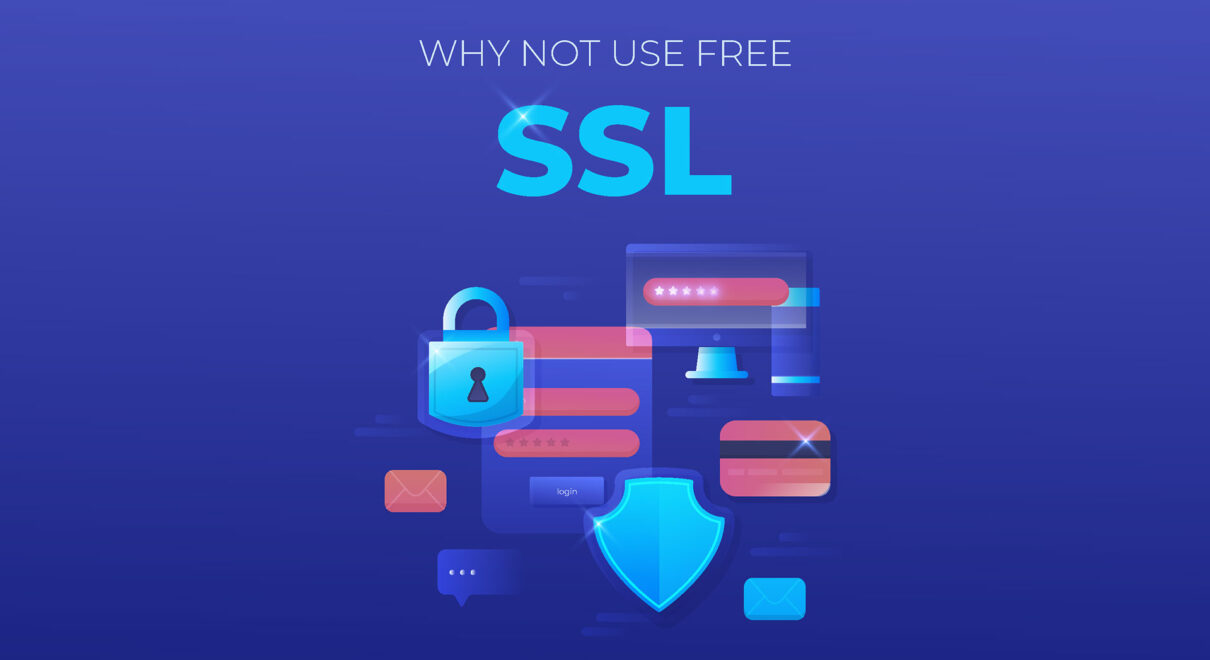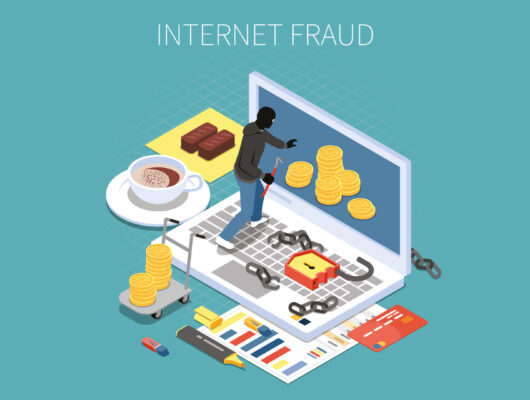What is SSL?
A safe, encrypted connection can be established between a client (such as a web browser) and a server thanks to the security protocol known as SSL (Secure Sockets Layer) (such as a web server). SSL was developed to ensure that sensitive data, including credit card details and login credentials, could be communicated over the internet securely.
When a client connects to a server using SSL, the two parties use a procedure known as the SSL handshake to create a secure connection. The client and server talk about the specifics of the encryption technique they will deploy for the session during the handshake and acquire digital certificates that verify for their identities. Once the SSL handshake is complete, the client and server can start transferring data.
SSL has been replaced by TLS (Transport Layer Security) as the primary protocol for securing internet connections. TLS is an updated version of SSL and offers stronger encryption and better security features.
Today, SSL/TLS certificates are used to secure a wide range of internet communications, including web browsing, email, and file transfers. When you see the padlock icon or “https” in your web browser’s address bar, it means that your connection is secured by an SSL/TLS certificate, and the data you transmit to the server is encrypted and protected from prying eyes.
What are the 3 types of SSL?
For SSL/TLS certificates, there are actually three different stages of validation, which are:
Domain Validated (DV) SSL: This is the most basic type of SSL certificate, and it provides a low level of security for websites. The domain owner only needs to prove their ownership of the domain by responding to an email or by adding a DNS record in order to receive a DV SSL certificate.
Organization Validated (OV) SSL: Compared to DV SSL, this type of SSL certificate offers a higher level of validation, and it calls for the certificate authority to confirm the organization’s validity in addition to domain ownership. Users of your website are more inclined to trust OV SSL certificates as a result, according to this.
Extended Validation (EV) SSL: This is the highest level of validation available for SSL certificates, and it provides the highest level of trust for visitors to your website. To obtain an EV SSL certificate, the organization must go through a rigorous validation process that includes not only domain ownership and organizational identity validation, but also a more thorough vetting process that confirms the legal, physical, and operational existence of the organization.
In general, the higher the level of validation, the more trusted the SSL certificate will be, and the more secure your website will be. However, EV SSL certificates tend to be the most expensive and take the longest to obtain, so you should choose the level of validation that best fits your needs and budget.
Why not use free SSL?
There is no technical support with Free SSL Certificate. Also, free SSL certificates can provide basic encryption and security for a website, but there are some reasons why companies might choose not to use them:
Limited Validation
Free SSL certificates often just offer domain validation, which means that the certificate authority (CA) merely confirms that the domain name in the certificate request matches the one on the certificate. They don’t carry out prolonged validation, which would entail confirming the validity of the business that operates the website. Attackers may find it simpler to mimic a website with a free SSL certificate as a result.
Limited Trust
Free SSL certificates are given by CAs, however not all web browsers and other software can recognize them. This implies that website users may encounter alerts stating that the certificate is insecure or may not be able to access the site at all.
Limited Warranty
Paid SSL certificates typically come with a warranty that covers damages caused by a certificate failure or breach. Free SSL certificates typically do not offer any warranty, which can leave companies at risk of financial losses if a breach occurs.
Limited Features
Paid SSL certificates often come with additional features, such as site seals, that can help to build trust with visitors to a website. Free SSL certificates typically do not come with these features.
Limited Support
Companies that use free SSL certificates may not have access to the same level of support as those that use paid certificates. This can make it more difficult to troubleshoot problems or get help if issues arise.
What is the difference between free SSL and paid SSL?
The main difference between free SSL and paid SSL is the level of validation that is performed on the certificate and the level of trust that is established by the certificate authority (CA).
Free SSL certificates typically provide domain validation (DV) only, which means that the CA verifies that the domain name matches the one in the certificate request. The validation process for a DV certificate is typically automated and can be completed quickly, often in a matter of minutes. Free SSL certificates are typically issued by CAs that are not as widely recognized by web browsers as paid SSL certificates.
Paid SSL certificates can provide higher levels of validation, such as organization validation (OV) or extended validation (EV). With OV and EV certificates, the CA verifies not only that the domain name matches the certificate request, but also that the organization behind the website is a legitimate legal entity. This process can take longer than domain validation, and typically involves additional paperwork and verification steps. The additional validation steps help to establish greater trust between the website and its visitors. Paid SSL certificates are typically issued by more widely recognized CAs that are trusted by web browsers and other software.
They may also come with additional features, such as site seals, that can help to build trust with visitors to a website. Paid certificates may also come with a warranty that covers damages caused by a certificate failure or breach, while free certificates typically do not offer any warranty.
All in all, while free SSL certificates can provide basic encryption and security, paid SSL certificates offer higher levels of validation, trust, and additional features that can help to build credibility and trust with website visitors.
Which SSL certificate is best for my website?
There are different types of SSL/TLS certificates that offer different levels of validation and features, and the best SSL for your needs will depend on your specific requirements. Consider the following when selecting an SSL/TLS certificate:
Validation Level
SSL/TLS certificates can be validated at different levels, including domain validation (DV), organization validation (OV), and extended validation (EV). The higher the validation level, the more thorough the validation process, and the more trust the certificate can establish with visitors to your website.
Warranty
Some SSL/TLS certificates come with a warranty that covers damages caused by a certificate failure or breach. The amount of the warranty can vary depending on the type of certificate.
Compatibility
Ensure that the SSL/TLS certificate you select is compatible with the web server software you are using, as well as with web browsers and other applications used by visitors to your website.
Price
The cost of SSL/TLS certificates can vary widely, with free certificates being available as well as premium certificates that offer advanced features and more comprehensive protection.
Features
Some SSL/TLS certificates provide extras like site seals that might help you gain the trust of website visitors.
Choosing an SSL/TLS certificate from a respected certificate authority (CA) and selecting the validation level that is adequate for your purposes are generally advised. Greater confidence and security may be provided by OV and EV certificates, although obtaining them might take more time and effort. It is best to speak with a reputable security expert if you are confused which SSL/TLS certificate to select.
What is better HTTPS or TLS?
It is not a question of which is better, as HTTPS and TLS serve different but related purposes.
HTTPS (Hypertext Transfer Protocol Secure) is a protocol used to secure communications between a client and a server . HTTPS uses SSL/TLS to encrypt data sent between the client and server, ensuring that sensitive information, such as passwords and credit card numbers, cannot be intercepted or tampered with.
The protocol used to create secure connections between a client and a server is TLS, a more current version of SSL. Data is secured from interception and the right server is being accessed due to TLS’s encryption and authentication features.
In other words, HTTPS is the protocol used to secure web traffic, while TLS is the protocol used to provide the security for the HTTPS connection.
Since HTTPS depends on TLS to provide security for the encrypted communication between a client and a server, the question of which is better is therefore moot. The use of HTTPS is required by updated browsers in order to secure communication between a client and a server, and HTTPS requires the use of TLS in order to create the secure connection.








